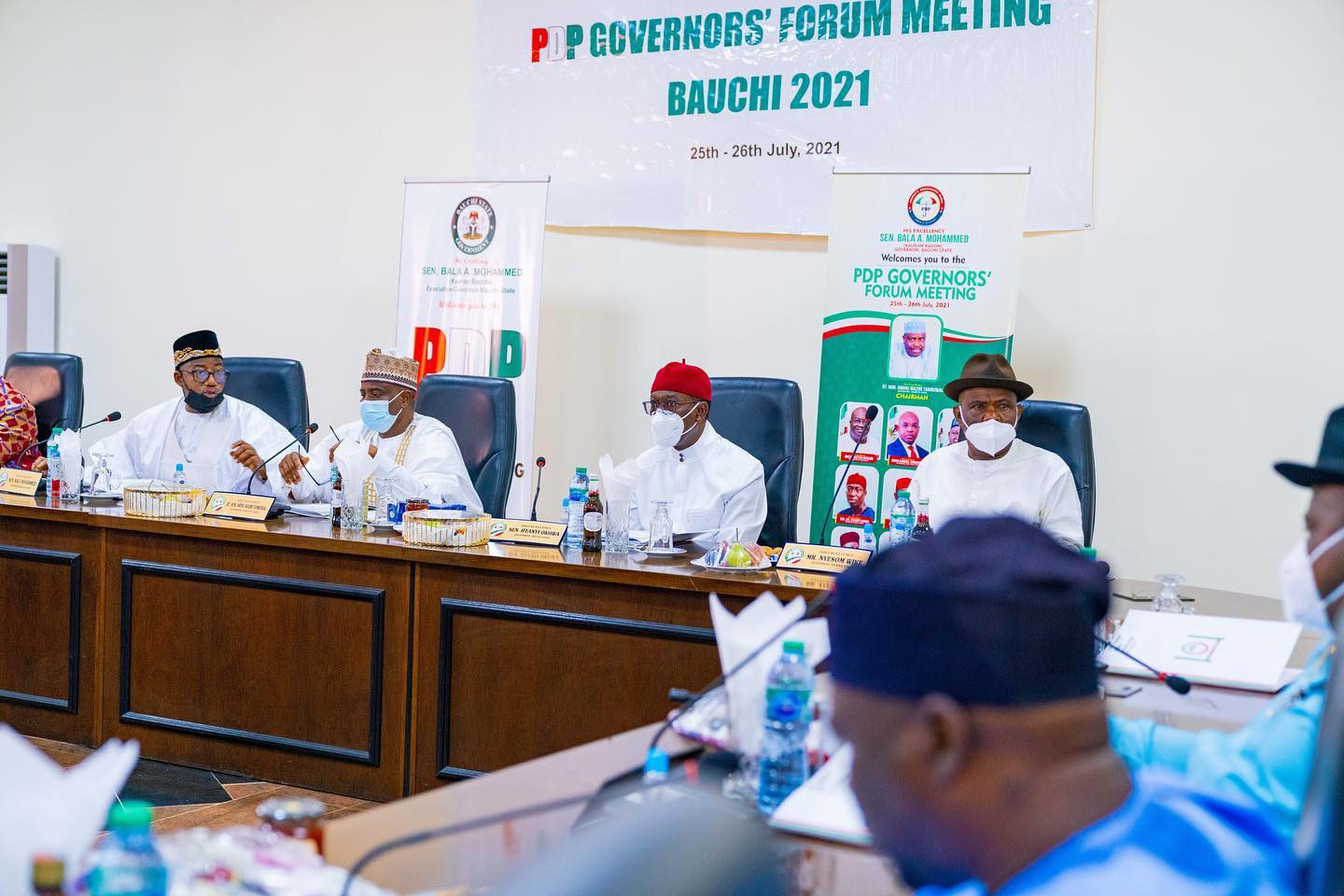Editorial
Party Defections Taken Too Far

The Peoples Democratic Party (PDP), last week, instituted a legal action at the Supreme Court against the Zamfara State Governor, Alhaji Bello Matawalle, and members of the State House of Assembly and federal lawmakers from the state who defected with the state chief executive from the PDP to the ruling All Progressives Congress (APC).
In the suit which follow an earlier one initiated by the Zamfara State Chapter of the PDP at the Federal High Court in Abuja seeking similar reliefs, the main opposition party in the country is asking the Apex Court of the land to declare as vacant the seats of its erstwhile members in the National Assembly as well as the Zamfara State House of Assembly who dumped the party for the APC. The party also wants Governor Matawalle to lose his governorship position as a consequence of the defection.
On June 28, 2021, Matawalle had announced his defection from the PDP to the APC at an occasion attended by leaders of the ruling party including the Secretary to the Government of the Federation and 11 APC governors in Gusau, the state capital. Also received into the APC from the PDP were all the 24 members of the State House of Assembly, all three senators and six out of the seven members of the House of Representatives from the state. Only the Deputy Governor, Aliya Gusan and the member Representing Anka/Talata-Marafa Federal Constituency in the House of Representatives, Hon. Kabiru Marafa, chose not to defect of all that benefitted from the Supreme Court judgement in 2019.
Governor Matawalle was declared governor and the lawmaker’s winners of their contested seats on May 24, 2019 after the Supreme Court disqualified all the APC candidates in the general elections of 2019 over the failure of the party (APC) to conduct valid primary elections to produce the candidates.
Before Matawalle and his group defected, the governor of Ebonyi State, Dave Umahi and his Cross River State counterpart, Ben Ayade had walked out of the PDP into the APC this year. On the other side, Governors like Aminu Waziri Tambuwal of Sokoto State, Samuel Ortom of Benue State and Godwin Obaseki of Edo State had moved without much ado from the APC to the PDP and scores of lawmakers criss-crossing the political divides at will at different times in the past under questionable and very disturbing circumstances.
Observers and stakeholders have continued to express worry at the unhealthy trend describing it not only as embarrassing to the nation, but also as a dangerous development that could spell doom for the country’s democracy which requires urgent and decisive action to contain.
While The Tide concedes to politicians their right to freely move and pitch tent with any political party of their choice and has nothing against political groups’ freedom to poach influential members of rival parties, we are concerned that the recklessness of the act, if not checked, could weaken the system and erode every advantage and benefit accruable to the people from the liberal democratic system the country is nurturing.
Critical watchers of the Nigerian political space have come to the inevitable conclusion that the constant defection of politicians from one party to another have less to do with principles and ideologies but more to do with self-serving motives. Whether by enticement, coercion, manipulation, blackmail or intimidation employed to compel this indiscriminate move of the political class, the fact remains that the indulgence systematically eliminates viable and vibrant alternative voice that is necessary for the socio-political and economic development of the country.
According to a certain commentator, the ongoing rash of defections being instigated and celebrated by the APC is particularly baffling because of the absence of concrete ideological validations or performance indices driving the defecting politicians.
“It is not as if states being run by PDP governors are faring worse in development than APC states. It is not like the current Federal Government is a PDP-run one under which insecurity, poverty and socio-economic conditions have become nightmarish. In a twist of paradox and curiosity, political actors are defecting to the ruling party today at a time when the government is widely rated to score lowest in nearly all performance indices,” he said, concluding that the defectors could only be doing so either for political survival, exemption from prosecution form corruption or promises of future juicy positions and privileges.
It is, therefore, to entrench a more accountable political class and to protect the people from dubious political actors that The Tide commends and supports the PDP for the bold and courageous step to seek legal redress which outcome could conclusively address and stem the ugly tide.
While defending his party’s decision to go to court, Kola Ologbodiyan, spokesman of the PDP, averred a “combined reading of Section 221 of the 1999 Constitution and the pronouncement of the Supreme Court in Faleke Vs INEC (2016) is clear in holding that it is the political party that stands for election, that votes scored in election belong to the political party and that the candidate nominated to contest at an election by his party acts only as the agent of the party”.
Suffice to say that the shameless political harlotry of the Nigerian politician and all the dangers it portends for our democracy has just got to stop, and we urge the Supreme Court to attend to this case in the light of all that it is meant to put right to save our democracy.
Editorial
Task Before New Defence Minister
Editorial
HYPREP And The Collapsed Water Tank








